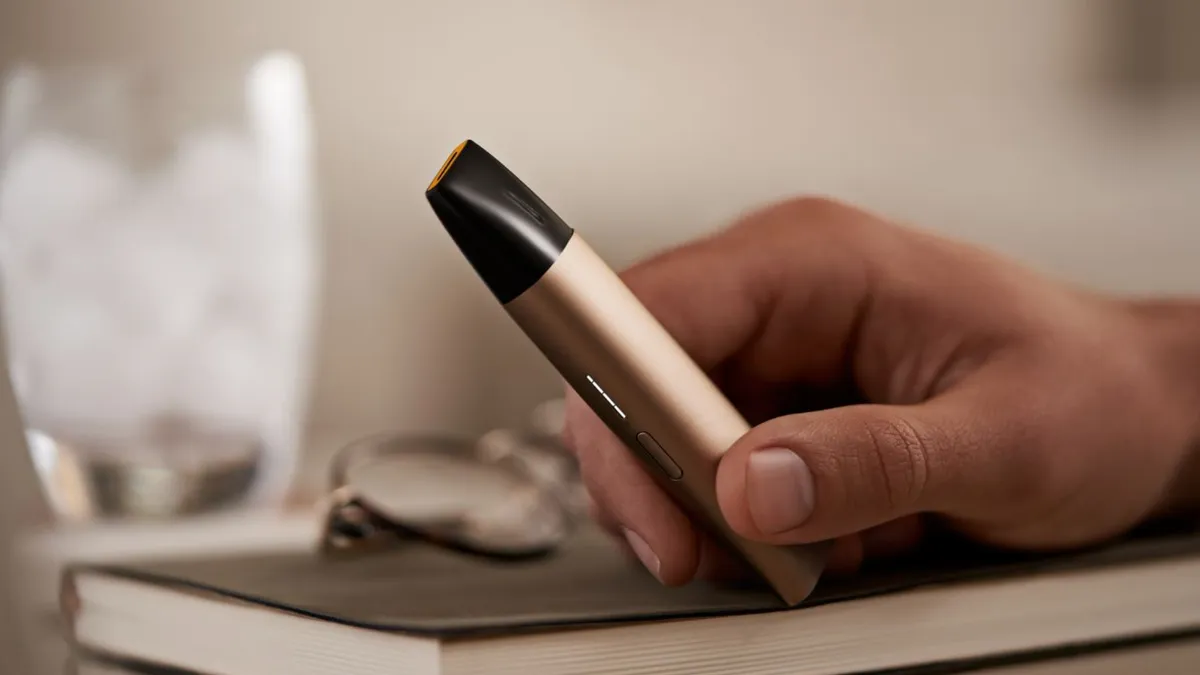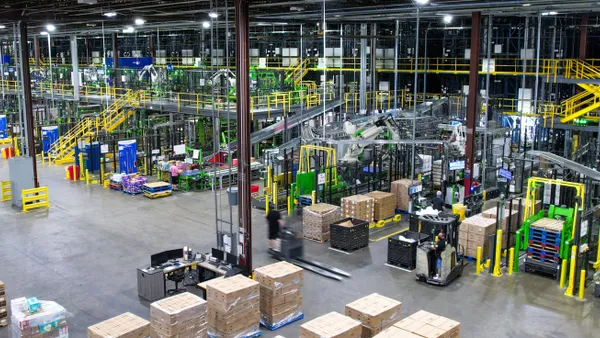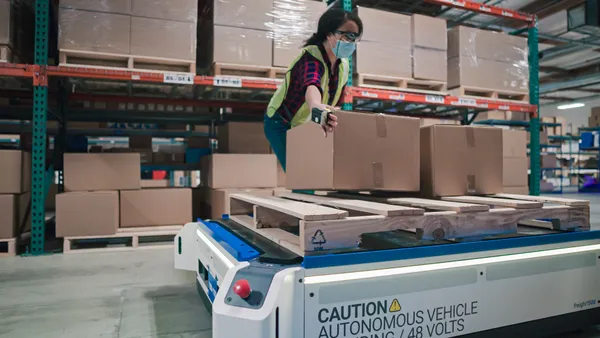Dive Brief:
- Philip Morris International is shifting its sales strategy for its heated tobacco products to prioritize existing users over new customers as it faces device component constraints, CFO Emmanuel Babeau said on the company's Q3 earnings call.
- Demand has grown for the company's IQOS device, which heats rather than burns tobacco, but Philip Morris is encountering "tightness in device supply" due to a shortage of semiconductors. This is limiting product availability and forcing missed sales in certain markets, Babeau said, as the Marlboro maker vies to reduce its share of revenue coming from cigarettes.
- "At this stage, semiconductor supply forecasting remains volatile so we assume the tight supply situation will persist into the first half of 2022," Babeau said. "We will continue to carefully prioritize necessary device replacement for existing users, followed by device sales targeted at acquisition."
Philip Morris' non-cigarette volume share grows
Dive Insight:
Supply chain challenges, be they extended transit times or difficulties sourcing key components, have forced companies across industries to prioritize certain consumers and products.
The Home Depot is having its suppliers narrow their focus to restocking items that cater toward the company's high-spending Pro customers ahead of other SKUs. And Tesla, also affected by the global semiconductor shortage, is shifting more of its production capacity from home batteries to cars.
For Philip Morris, its "North Star" in this disruptive environment is to make sure existing IQOS users can replace their devices whenever they want, Babeau said. The company also wants to avoid new devices being sold "with a very low percentage of utilization afterwards by the consumer."
But device replacements also bite into supply. When Philip Morris launched its new IQOS ILUMA device in Japan, the company saw its large IQOS user base there upgrade existing devices even when it wasn't necessary, Babeau said. "This is a highly desired consumer behavior in normal supply circumstances, but increases constraints in a shortage," he added.
Demand continues to grow for the company's heated tobacco products — shipment volumes for that category grew 24% YoY — but supply isn't keeping up. Outside of Japan, IQOS device shipments increased 7% YoY, which Babeau categorized as "significantly below" the sales growth in existing markets.
Philip Morris is still aiming for the majority of its sales to be from smoke-free products, rather than cigarettes, by 2025. That will require more semiconductor chips to make more devices. Heated tobacco products comprise 13% of the company's total shipment volume year-to-date, compared to 5% in 2018.
Even if the growth rate in heated tobacco products slows due to supply constraints, it's still on track to gain more share in the company's product mix, Babeau said.
"I think we've been very clearly saying it today, we are absolutely sure of the very strong potential of IQOS," he said. "And we think that this potential remains absolutely unchanged by what's going on."
This story was first published in our Operations Weekly newsletter. Sign up here.















